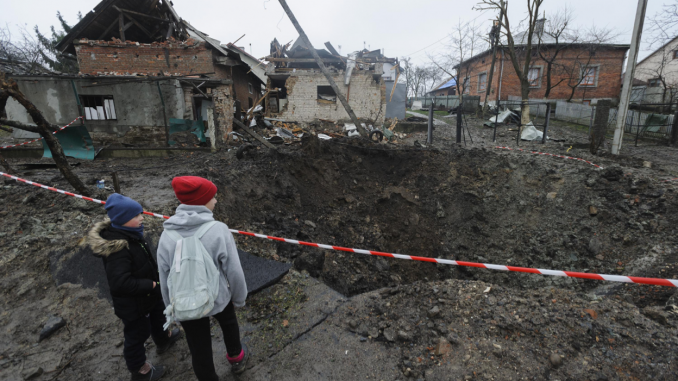
Poland has been a member of the North Atlantic Treaty Organization (NATO) since 1999, and has since been involved in over a dozen Allied operations. The nation-state’s ongoing involvement in this alliance became increasingly relevant after a missile landed in the village of Przewodów on Nov. 15. This missile event was the first instance from the current Ukraine-Russia conflict that a third party was attacked. Although not considered to be any strong military attack on Poland and more an accidental consequence of the neighboring war, this instance created a forum for international discussion of involvement in this persistent and intensifying situation.
According to the Washington Treaty from which NATO was created, all states in the alliance resolve to unite defenses for the sake of peace and security in the event that a member is attacked. Since neither Ukraine nor Russia are members of NATO, the treaty organization has not been called for direct involvement in the conflict between the two powers. However, when a missile landed in Poland and killed two civilians, an investigation of the source was called upon to determine whether NATO needed to defend Poland.
Worries were soon eased after a swift initial investigation of the missile found that it was unintentional and likely a mislaunched effort by Ukrainian defenses. NATO Secretary-General Jens Stoltenberg suggested during the gathering at the G20 Summit in Bali, that the missile may have been a Ukrainian counterattack to an incoming Russian missile.
On Nov. 15, Ukraine was experiencing some of the highest levels of Russian military attack since the beginning of the war. Head of the military administration of Lviv, Maksym Kozickij, estimated that recovery from the Nov. 15 attacks on Ukraine would take up to a year. It was estimated that this attack was the most expensive Russian militaristic move since the multinational state instigated this conflict.
The story explained by United States intelligence officials was that the missile was a Ukrainian military mishap. Air defense missiles were deployed by Ukrainian defenses in an effort to combat the costly and aggressive advances made by the Russian military. This, argued by US officials, resulted in one missile likely missing its intended target, failing to self-destruct and landing in Polish territory.
There is no strong Polish suspicion of an intended attack. Stated by Polish president Andrzej Duda, “There is nothing, absolutely nothing, to suggest that it was an intentional attack on Poland.” Duda also specified that his teams on the ground believe that the damage was caused by the physical impact of the missile along with an explosion from its fuselage, and that there was no actual detonation. While the investigation continues, this information was received by Duda directly from the joint US-Polish investigative team.
However, Ukrainian president Volodymyr Zelenskyy implores that the missile was not of Ukrainian origin. In a meeting broadcast on Ukrainian television, Zelenskyy said that Ukraine would participate in the investigation of the missile as he wants to witness the presentation and explanation of evidence. This is for the sake of fairness, according to Zelenskyy.
Ultimately, this instance is understood to be an unintentional consequence of the ongoing conflict between Russia and Ukraine. NATO’s Article 5 statement offers the broad notion of an attack on one member means collective involvement. NATO’s notion of collective defense is nuanced, but the involvement of this treaty organization would have worldwide ramifications. The fact that aligned powers could be in a position to contemplate future involvement in the current Russia-Ukraine conflict suggests that this illegal war has the potential to be a much more complex event on the global stage.
